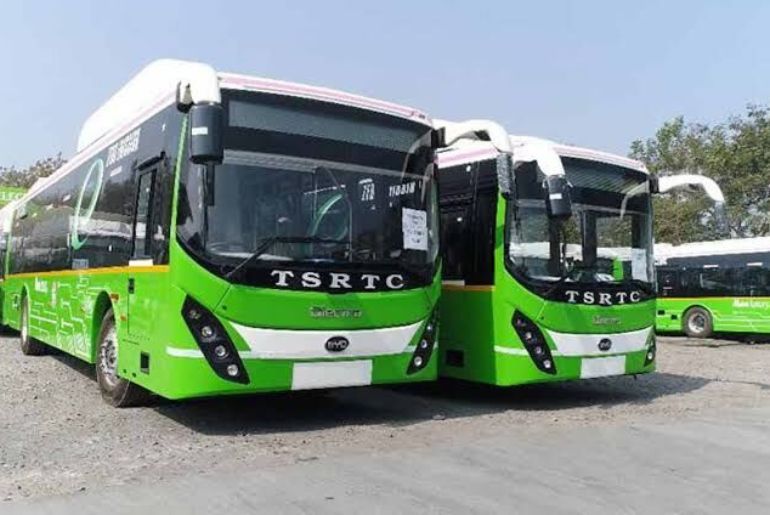The Telangana State Road Transport Corporation (TSRTC) is set to establish dedicated electric vehicle (EV) depots across Greater Hyderabad to support the deployment of 2,800 electric buses over the next three years. This initiative is part of the state government’s broader plan to transition to sustainable public transportation and significantly reduce urban air pollution.
Infrastructure Development and Investment
Each new EV depot will feature advanced charging stations and high-tension (HT) power connections, with the total estimated investment of ₹392 crore. To support funding, TSRTC plans to introduce a green fee of ₹5–10 on bus tickets, expected to generate around ₹110 crore annually. Since nearly 75% of city bus passengers are women traveling free under the Mahalakshmi scheme, much of the fee burden will be covered by the state government.
The development of these depots ensures that TSRTC’s growing electric bus fleet is efficiently managed and operationally optimized.
Expansion of Electric Bus Fleet
Currently, TSRTC operates 265 electric buses in Hyderabad and plans to add another 275 buses in the next three months. Existing charging infrastructure is already operational at select depots, including JBS, Cantonment, HCU, and Miyapur-2, providing a foundation for the fleet’s expansion.
Environmental and Sustainability Impact
Hyderabad currently runs 2,926 diesel buses, each emitting approximately 2.15 kg of carbon daily. The introduction of 2,800 electric buses is expected to significantly reduce both air and noise pollution, contributing to a cleaner, greener urban environment.
This initiative aligns with Telangana’s ongoing commitment to enhancing public transportation infrastructure, fostering environmental sustainability, and promoting eco-friendly urban mobility solutions.

